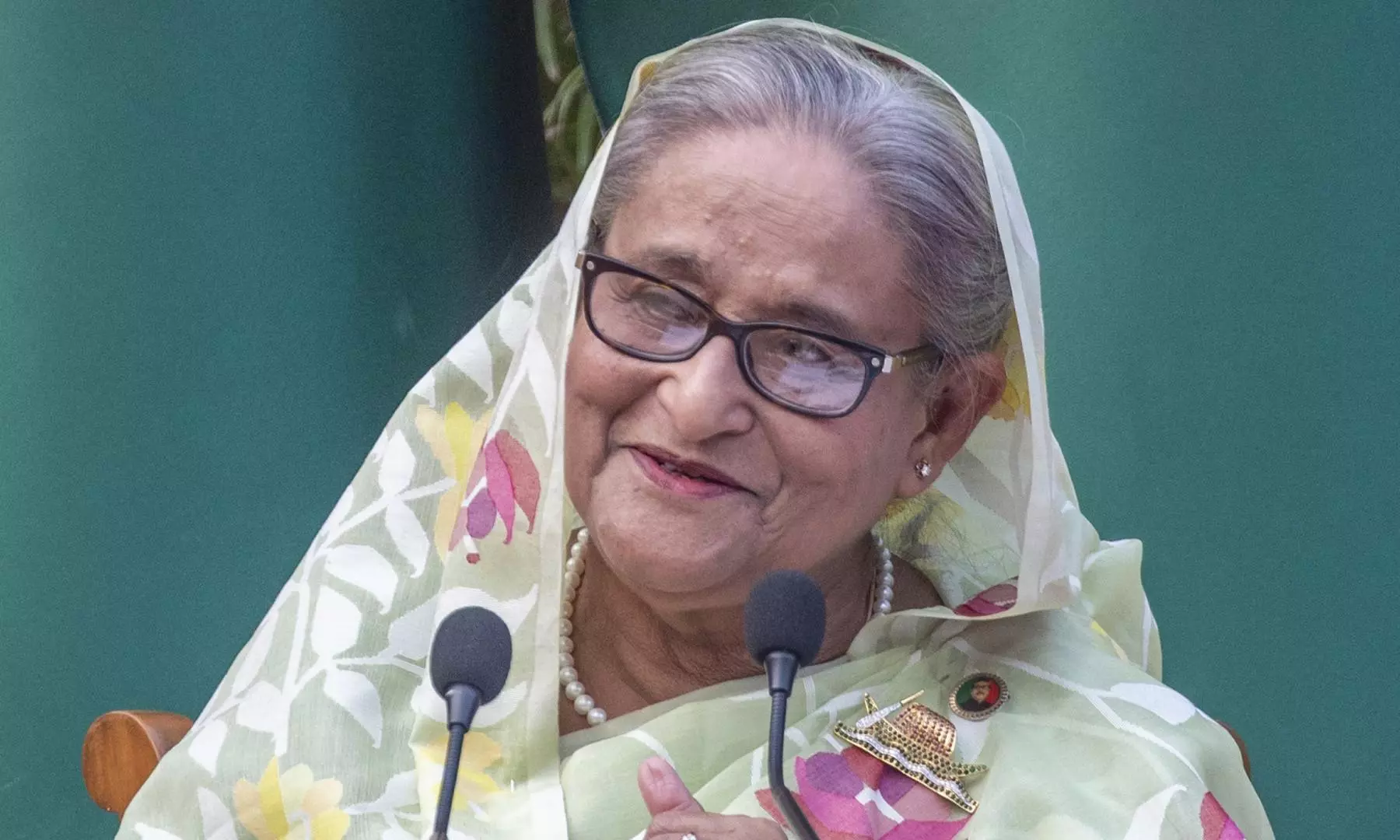
China calls Sheikh Hasina's death sentence Bangladesh’s ‘internal affair’
China calls Sheikh Hasina’s death sentence Bangladesh’s “internal affair” as Dhaka convicts the former PM in absentia for crimes against humanity

China on Tuesday (November 18) termed the awarding of death sentence to ousted Bangladesh Prime Minister Sheikh Hasina as an "internal affair" of Dhaka. Beijing declined to make any further comment on the incident.
The 78-year-old chief of the now disbanded Awami League was sentenced to death in absentia by Bangladesh's International Crimes Tribunal (ICT) for "crimes against humanity" in a case related to her government’s crackdown on student-led protests last year.
It also handed the death sentence to former Home Minister Asaduzzaman Khan Kamal on similar charges.
‘China committed to good neighbourliness’
Speaking to reporters, Chinese Foreign Ministry spokesperson Mao Ning said, "It is Bangladesh's internal affair," when asked about the verdict.
Ning further stated that China is committed to a policy of good neighbourliness and friendship towards all people of Bangladesh.
Also Read: Hasina’s death sentence pushes Bangladesh to brink of civil war
“We sincerely hope that Bangladesh will achieve solidarity, stability, and development,” she said.
Hasina has been living in India since she fled Bangladesh on August 5 last year in the face of the massive protests.
‘Biased and rigged’
Earlier, Hasina had rejected charges brought against her, declaring the proceedings by the International Crimes Tribunal (ICT) to be “biased and rigged”.
The tribunal, operating in her absence, convicted her of “crimes against humanity”, linked to the violent crackdown on student protests last year.
Also Read: Bangladesh urges India to extradite Sheikh Hasina after death sentence
Hasina labelled the trial a tool wielded by an “unelected government with no democratic mandate” that seeks to destroy her political base. She said she was denied a fair hearing or genuine defence, accusing the tribunal of acting as a “political weapon” rather than an impartial court.
‘Scapegoating Awami League’
In her statement, Hasina argued the real purpose behind the case was to scapegoat her party, the Awami League, ahead of the upcoming elections. She asserted she and her supporters did not receive due process, and said the trial lacked legitimacy because it was imposed by what she characterised as a caretaker regime without democratic backing.
Also Read: Bangladesh court sentences Sheikh Hasina to death for crimes against humanity
The tribunal’s verdict bans the Awami League from contesting the forthcoming polls and marks a turning point in Bangladesh’s fraught political landscape.
Hasina’s criticism centres on the lack of transparency and independence in the tribunal’s operations, as well as what she claims is selective justice targeting only her party while ignoring others.
(With agency inputs)

